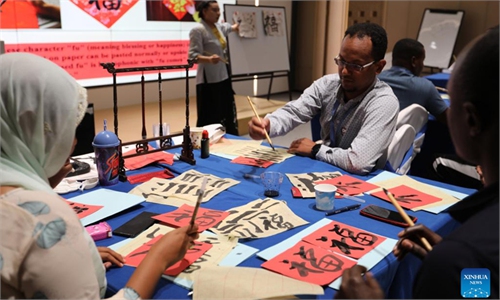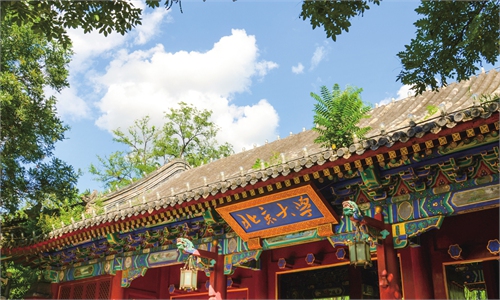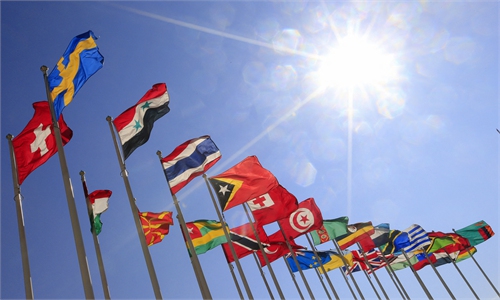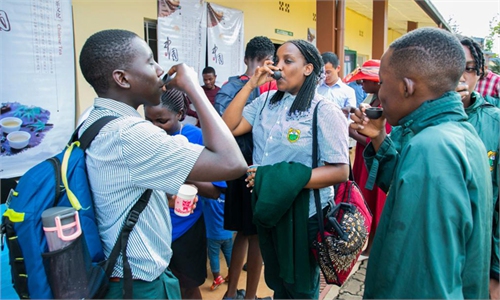ARTS / ART
Metaverse hosts first VR memorial to mark birthday of Confucius
The future of tradition
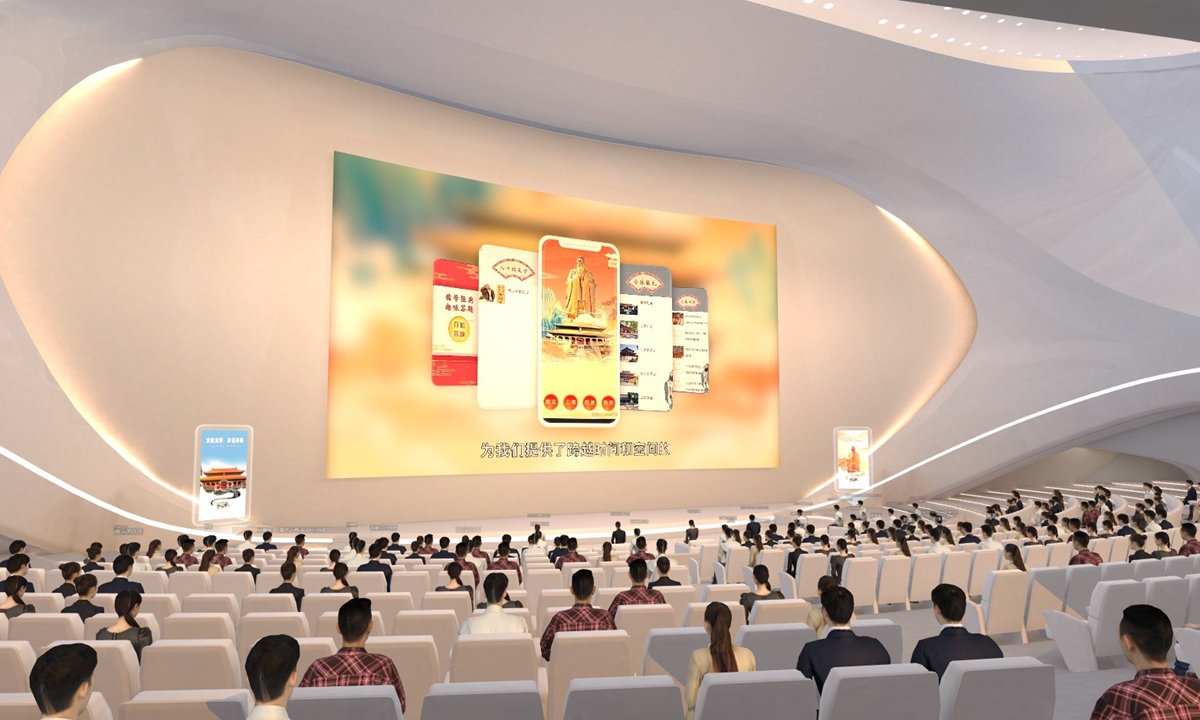
People use avatars to attend the Cloud Confucius Memorial Ceremony on Wednesday. Photo: Courtesy of the Confucius Cultural Festival
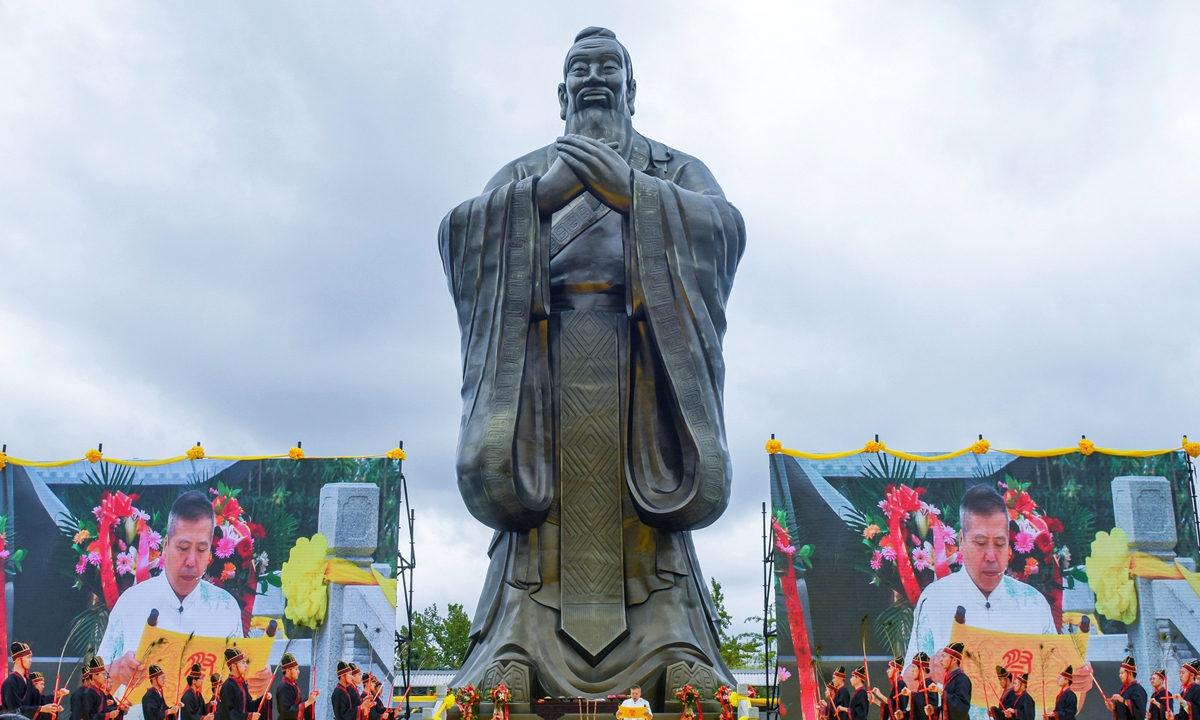
People take part in the Confucius Memorial Ceremony in Jiaozhou, Shandong Province, on September 28. Photo: VCG
On Wednesday, grand memorial ceremonies were held around China to pay tribute to Confucius, the great Chinese philosopher, politician and educator who lived during the 6th-5th centuries BC.Usually attending one of these ceremonies involves taking time out to get all dressed up and making one's way to a temple or other venue where a traditional ceremony is being held.
But for some people, attending the Confucius Memorial Ceremony was just a matter of a few button clicks this time.
With just one click attendees found themselves completely dressed and ready to go. A second later, they were beamed up to a huge hall, where they picked the best seats in the house to experience the Confucius Memorial Ceremony.
While this may sound like magic, it was actually virtual reality (VR) technology that brought the global event that was Confucius' 2,573rd birthday to the metaverse on Wednesday.
The technology allows China's ancient and profound Confucian culture to completely break through the boundaries of time and space so that countless people could immerse themselves in a fusion of tradition and modernity in the metaverse event known as the Cloud Confucius Memorial Ceremony.
The development of the Confucius Memorial Ceremony demonstrates not only the continuous advancement of science and technology, but also China's ability to maintain its excellent traditional culture through creative and innovative means.
Keeping pace with times
To participate in the VR ceremony, participants simply needed to choose their avatars through their mobile phone or a computer and then use these avatars to explore the main venue in the metaverse: a 600-seat auditorium - with 20 VIP seats - with a giant curved screen that displayed various videos to bring participants a "real" experience.
In order to make the event more exclusive and ceremonial, the venue also sported a Confucius-inspired canopy and displays of 28 themed posters related to Confucian culture so that visitors could feel a strong cultural atmosphere as soon as they entered the auditorium.
The "metaverse" is a very popular concept currently. Therefore, as the age of metaverse is approaching, how Confucian culture can illustrate its value and show new energy is an issue cultural departments throughout China have been thinking about.
"In past years, joint Confucius memorial ceremonies have been held online. The core content is to conduct various activities to worship and pay tribute to Confucius and other philosophers and scholars of Confucianism," Zhang Bo - director of one of organizers of the event, the Cultural Heritage Development Center in Jining, Shandong Province - told the Global Times. The county-level city of Qufu, the birthplace of Confucius, is located in Jining.
"New methods to demonstrate the ceremony can attract more people to take part in the inheritance and development of the culture," Zhang noted.
The endless growth of Confucian culture is precisely due to the concept of "keeping pace with the times," and the inheritance and development of culture in the new era requires a group of inheritors who have the courage to stand at the forefront of the times to perform their duties and responsibilities, analysts said.
In a press conference held last week, several Confucius temples and institutions involved in the Cloud Confucius Memorial Ceremony called on Chinese people at home and abroad to pass on Chinese civilization, carry forward Chinese culture and highlight the wisdom of Confucian culture.
The Cloud Confucius Memorial Ceremony in the past allowed traditional Chinese rituals and music be displayed in an efficient manner and carried forward the Confucian concept of "benevolence" so it could be spread around the world, Wang Chengshan, editor-in-chief of the website Chinakongzi under the China Confucius Foundation, pointed out.
Cherishing Confucius' wisdom
On Wednesday morning, Confucius memorial ceremonies were held around China.
In the great philosopher's hometown Qufu, hundreds of attendees took part in a ceremony in the morning at the Temple of Confucius, including local senior officials, foreign envoys, scholars and Confucius' descendants.
Built to commemorate and offer sacrifices to Confucius in 478 BC, the Temple of Confucius has been rebuilt multiple times over the centuries. The temple is the prototype and model for all the Confucius temples throughout East and Southeast Asia, particularly in terms of layout and style. Since 1994, the Temple of Confucius has been part of the UNESCO World Heritage Site "The Temple and Cemetery of Confucius and the Kong Family Mansion in Qufu."
Parallel memorial ceremonies also took place in Confucius temples in cities such as Harbin in Northeast China's Heilongjiang Province, Fuzhou in East China's Fujian Province and Hangzhou in East China's Zhejiang Province.
Together with the Confucius Memorial Ceremony, the International Confucius Cultural Festival was launched with the international Nishan Forum, a space to discuss culture and civilization, as well as a Confucius Culture Week for Chinese and foreign students.
Founded in 1989, the International Confucius Cultural Festival is one of the largest nationally and internationally supported tourism festivals integrating culture, tourism, and scholarly and scientific research with the aim of promoting ancient Chinese culture.
By the end of 2019, there were 550 Confucius Institutes and 1,172 Confucius Classrooms in 162 countries and regions around the world. Their aim is to deepen international understanding of Chinese language and culture and promote inter-personal exchanges between China and other countries.

